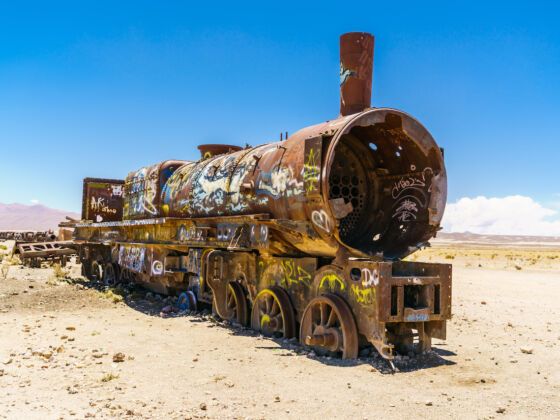One day recently, bored and impulsive, I decided to Google Filemón Escobar, a Trotskyist tin miner I lived with over 40 years ago in the town of Siglo Veinte, Bolivia. I discovered he was now Senator Filemón Escobar, a leading figure in the socialist government of Evo Morales. The last time I saw him, he was prisoner Filemón Escobar in a La Paz jail, so comfortable in his prisoner’s skin I could barely bring myself to feel sorry for him.

Revolutionary Days in Siglo Veinte With Filemón Escobar
I passed along to him some messages from his comrades, we spoke a bit, and I left. Thinking of Filemón makes me think of the narrow, winding, treeless road in the Altiplano that took me in winter from Oruro to Siglo Veinte in the mid and late ’60s, when the skies began to lose light right after an early lunch. The mining region was hopelessly bleak, enlivened only by sporadic herds of llamas trotting from nowhere to nowhere.
But if you happened to be a young revolutionary, as I was, it was paradise. On my first trip there in 1965, the miners’ militias still ruled the roads, the result of the revolution of ’52 that saw miners, peasants, and city workers combine to defeat the Bolivian Army.
The Bolivian Revolution stood as a little-known bridge between the better-known Mexican and Cuban revolutions. My Bolivian stories seldom saw the light of day. Bolivia? No one cared about Bolivia. Too remote to care about.
Living in Siglo Veinte, for a Bronx boy, was harsh. Filemón’s shack was icy, without water, and often without electricity. His roommate Lucho’s leather hand was always sitting on the table waiting to be claimed. (Lucho had lost his real hand many years ago working with a short fuse.) I came to see it as part of the shack’s furnishing. The food, mainly fideo, a noodle stew, was tasty. Even the cold bleakness was offset by the town’s companionable culture of struggle. But slower to get used to was the wind-gouged outhouse of metal slats over an ocean of excrement. That was a challenge. What made it bearable was that it never quite seemed real. The stubbornest and most protective part of my psyche was always able to convince me I was imagining it.
Filemón was my core teacher in this revolutionary finishing school. He called me comrade, and I called him comrade. We were like members of a religious sect, which his party, the POR (Revolutionary Workers Party), strongly resembled. Trotsky was its prophet and saint, his writings its scripture. It even had its own devil, the Bolivian Communist Party, whose members were all branded as Stalinists, which is to say, Satanists of the Left. The term political tourist had not yet been coined, but I think I may have been one of Bolivia’s first.
Filemón urged me to demonstrate with the miners, and I did. He urged me to give talks to them about the role of Trotskyism in American politics (nonexistent, but who was to know?), and I did. He urged me not to talk to the Stalinists, but I did.
“You don’t believe what we say?”
“I believe,” I said, “but it’s my nature to test my beliefs by questioning others.”
I think he knew then that nothing good would come of me politically. He was a man who never doubted himself, and such men go far in Bolivia’s rough and tumble politics if they can avoid dying violently along the way. Like our comrade Isaac Camacho, thrown to his death from a helicopter during the years of the military terror.
Unlike almost all his fellow miners, Filemón was not Indian. He was light-skinned. Of Lebanese descent, his comrades informed me. Filemón never divulged any details about his personal life. To him life wasn’t personal, it was political. That Filemón was still alive surprised me more than his title as senator. Bolivia’s future was always his present.